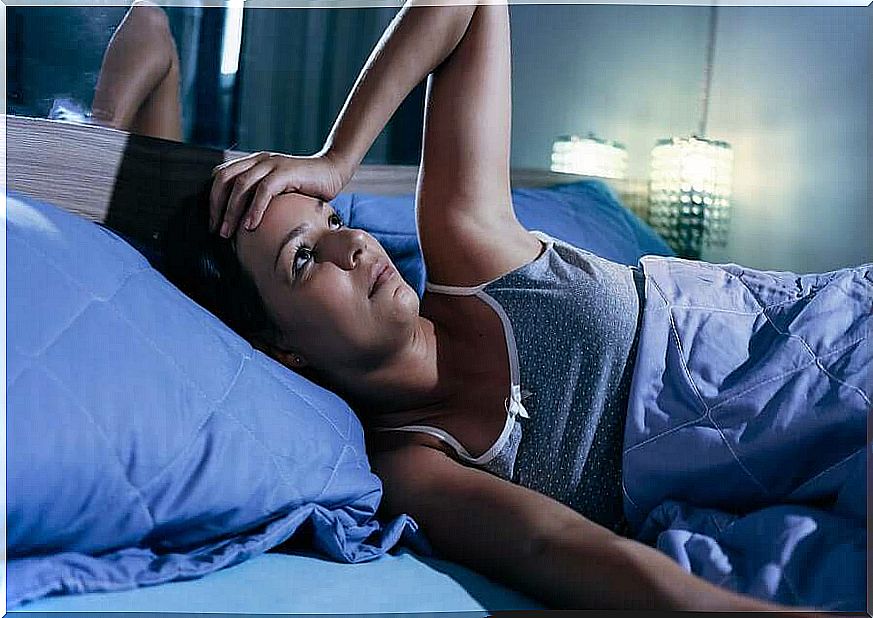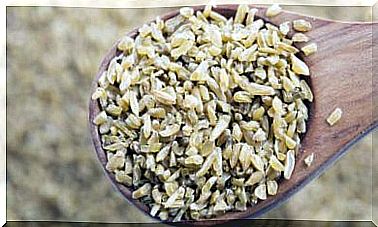Why Do We Have Sleep Spasms And How To Avoid Them?

The spasms we have while sleeping are actually short, severe, involuntary muscle spasms that occur mainly between wakefulness and sleep. They are also called myoclonic jerks or hypnotic jerks.
When they occur, sleep spasms can wake up the person who has them and whoever sleeps with them. Also, they are usually preceded by intense sleep or hallucinations. The most typical is the feeling of falling down a ladder or somewhere deep.
While sleep spasms can be worrying or uncomfortable, they are not a serious problem. In fact, this is a situation that 70% of the population experiences.
Although it is not yet known for sure what causes them, some factors can favor their occurrence. In this article, we’ll explain what they are.
Why do we have spasms when sleeping?
The cause of sleep spasms is believed to be the body’s preparation for sleep. The body tends to slow down all functions such as breathing and heart rate. Furthermore, the motor function ceases. Thus, the body guarantees that, during this period, the body will not react and will remain safe.
Other theories hold that these spasms are breaches of our ancestors. A study conducted at the University of Colorado (USA), led by Coolidge, says:
This suggests that sleep spasms are the remnants of a defense mechanism. Stimuli such as noise or lights can also trigger them. On the other hand, they are believed to be influenced by the kind of life we currently lead.

What factors can favor the occurrence of spasms?
As we know, the current pace of life affects many areas of our health, and that includes sleep. It is believed that having a fast pace of life and, consequently, sleeping a few hours a day can trigger sleep spasms. Other factors that seem to have an influence are:
- Anxiety and stress.
- Fatigue.
- Sleep deprivation.
- Caffeine consumption.
- Other stimulant drugs.
Any type of problem that disturbs relaxation at bedtime can increase these spasms. There is also evidence that nicotine and even exercise may be related.
How to reduce spasms when sleeping?
As we believe that sleep spasms can be caused by anxiety or stress, the first step is to try to reduce them. For this, it is essential to initiate a change of mindset.
Routine can feel stifling on many occasions, but we should focus on staying calm. Trying to see things less drastically can help us reduce this constant anxiety.
Likewise, it is essential to lead a healthy lifestyle. A balanced diet and regular moderate exercise are essential measures to achieve quality sleep. Exercises like yoga and pilates, which help to control stress, are perfect alternatives.
In the diet, it is necessary to reduce caffeine intake. It would also be advisable to stop smoking or, in the case of other toxic habits, to eliminate them completely. Any substance that excites the central nervous system promotes these sleep spasms.
Also, try to establish a good sleep schedule. Try to organize your day so that you have at least 8 hours to devote to rest. It’s also important not to take problems to bed. Thoughts that cloud your mind, for example, can impair the quality of your sleep.
Conclusion
Sleeping spasms are not a concern. However, if they greatly influence the quality of your sleep, try to improve your sleep habits. Your lifestyle is critical to sleep better.









